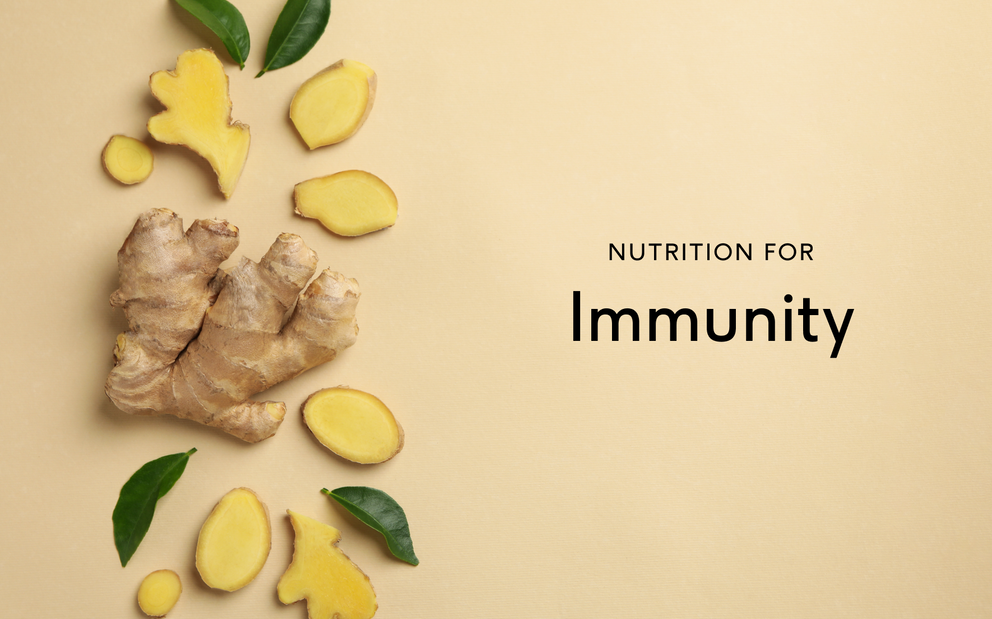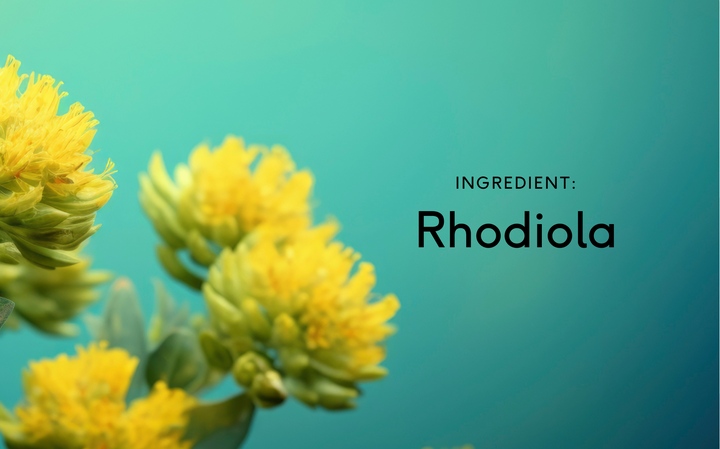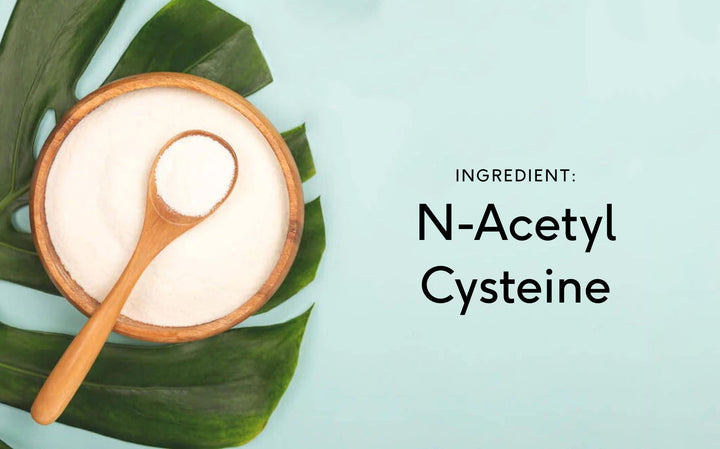Best 5 Foods to Boost Your Immunity Naturally
Table of contents

Your immune system is delicately balanced. Overactive immune function tears your body apart from the inside, but if your immune system is under-active, you are left exposed to disease. People resort to drastic measures to help their immune systems stay healthy, but it might be possible to support healthy immune function with nothing more than the five foods in this list.
Your immune system is delicately balanced. Over-active immune function tears your body apart from the inside, but if your immune system is under-active, you are left exposed to disease. While quality supplements are a good way to give your immune system a boost, healthy diet is an absolute must to get your immune system perform at its peak.
Which foods are best for immunity?
Antioxidants are the main components of proper immune health. The more antioxidants you consume, the better your immune system will be able to deter threats.
Oxidative stress plays a crucial role in the cell life cycle, but excessive oxidative damage leads to inflammation, disease and cell death. Your immune system is more affected by oxidative stress than other parts of your body, which is why antioxidants work so well to bring your immune system into balance.
Let’s examine the five foods you should be eating to improve your immune health:
1. Oranges
Citrus fruits are great sources of vitamin C, an antioxidant that the immune system uses to keep you healthy. All types of oranges will do, and you can substitute other citrus fruits, like lemons, grapefruits, or tangerines.
- Calories per 100g: 37.4
- Grams of fibre: 1.7
- Grams of protein: 1.1
- Grams of fats: 0.06
- Grams of carbs: 8.5
2. Garlic
Garlic reduces the severity of infections, and it might prevent illness, which more than merits its use as a Medieval cure-all.
- Calories per 100g: 80
- Grams of fibre: 10
- Grams of protein: 2
- Grams of fats: 1
- Grams of carbs: 20
3. Ginger
Ginger contains gingerol, which behaves similarly to capsaicin in the body. This potent antioxidant helps your immune system function better by reducing inflammation.
- Calories per 100g: 90
- Grams of fibre: 2
- Grams of protein: 2
- Grams of fats: 1
- Grams of carbs: 20
4. Almonds
Almonds contain high concentrations of bioavailable vitamin E, a potent antioxidant that keeps your immune system functioning properly.
- Calories per 100g: 550
- Grams of fibre: 12
- Grams of protein: 20
- Grams of fats: 58
- Grams of carbs: 8
5. Papaya
Your gut is intimately connected with your immunity, and papain, a compound unique to papayas, helps with digestion. Papayas also contain high concentrations of the antioxidant vitamin C.
- Calories per 100g: 38
- Grams of fibre: 2
- Grams of protein: 1
- Grams of fats: 0
- Grams of carbs: 10
Benefits of oranges for immunity
Why are oranges good for immunity?
Oranges and other citrus fruits are great sources of vitamin C, a powerful antioxidant that your immune system needs to function effectively. The cold-preventing effects of vitamin C appear to have been over-hyped, but this essential antioxidant does appear to reduce the duration of cold symptoms. Plus, it is an incontrovertible fact of human biology that your immune system wouldn’t be able to function without vitamin C.
When and how to eat oranges
Orange slices are easy to pack with you on the go, but orange juice is even more convenient. Pick up a bottle of 100% orange juice (not from concentrate) instead of a coffee tomorrow morning.
Fresh squeezed orange juice is probably the easiest way to absorb all the powerful antioxidants orange fruit has to offer. Most supermarkets now sell freshly made juices so make it a ritual to grab a bottle on the way to work or during your lunch break.
How are oranges under-appreciated?
There are so many different kinds of oranges, and they’ve been bred with other citrus fruits to create even more variety. It is possible to become a true citrus connoisseur as you eat oranges for their immunity benefits.
Dish ideas
Orange juice works great as a liquid for smoothies. Mix in some frozen mango chunks for a portable vitamin C drink that will keep illness away.
Benefits of garlic for immunity
Why is garlic good for immunity?
Garlic contains a substance called allicin, which is believed to have immune-boosting powers. It also appears that garlic has cardiovascular benefits, and traditional cultures around the world used garlic for fighting infections… and fighting vampires.
When and how to eat garlic
Garlic’s potent taste makes it best to use this edible plant’s bulbs sparingly in food. While some people eat entire garlic cloves at once, remember it’s the allicin you want to consume, which is released when garlic is crushed or digested.
How is garlic under-appreciated?
While traditional cultures may not have had our scientific tools at their disposal, they universally revered garlic for its healing powers. It's time to take a page from ancient wisdom and incorporate garlic more fully into our modern diets.
Dish ideas
Pick up a bonafide garlic roaster and get to it. These tiny ovens roast garlic bulbs to perfection, and you might find your roasted garlic so tasty that you eat the whole bulb.
Benefits of ginger for immunity
Why is ginger good for immunity?
Ginger contains gingerol, a unique compound that has potent antioxidant properties. Many forms of traditional medicine prescribe the use of ginger for infectious illnesses, and this root also has impressive digestive benefits.
When and how to eat ginger
While ginger has a potent taste, it pairs well with many dishes when used in small quantities. You can also consume ginger in candy and other sweets—anything goes if you get an adequate amount of gingerol and don’t compromise your health with processed foods.
How is ginger under-appreciated?
As an important component of Ayurvedic and Chinese medicine, it’s clear that there’s still more to learn about the medical benefits of ginger. It’s a great natural flavoring agent, so eating ginger is both delicious and beneficial.
Dish ideas
Try brewing your own ginger tea. Peel fresh ginger root, and dice it into small pieces. Boil the ginger chunks in purified water, and strain your tea before drinking.
Benefits of almonds for immunity
Why are almonds good for immunity?
Almonds are a good source of vitamin E, which is second only to vitamin C when it comes to food-derived antioxidants. Even if you are getting plenty of vitamin C, it is important to also consume vitamin E, and almonds contain fatty acids, minerals, and plenty of other nutrients your immune system needs to thrive.
When and how to eat almonds
Pack your dry roasted almonds with you, or keep them in a bowl on the kitchen counter for easy access.
How are almonds under-appreciated?
While almonds are widely known for their fatty acid and mineral content, many people don’t know they also contain vitamin E. Since this antioxidant is harder to source than vitamin C, almonds can be a relief for vegans who need more vitamin E in their diets.
Dish ideas
Enjoy almonds dry roasted with sea salt, or branch out into different flavours. Raw almonds also go well with many baked dishes.
Benefits of papaya for immunity
Why is papaya good for immunity?
Papayas contain lots of vitamin C, which makes them similar to many fruits and vegetables. What sets papayas apart, however, is their digestive benefits, which may also improve your immunity.
Papaya is packed with 200% of your daily vitamin C requirement acting as a shield against various infections. Papaya also contains a digestive enzyme along with fibre which helps improve your digestive health.
When and how to eat papaya
Papayas can be sticky, so it’s best to eat the fresh form at home. Dried papayas, however, are more portable, and papaya juice has the same benefits as the fruit itself.
How is papaya under-appreciated?
Improving your gut health may increase your immunity, so papayas could offer better immune benefits than other fruits that contain vitamin C.
Dish ideas
Since papayas are fibrous, they roast well. Simply add some brown sugar and bake your papayas in the oven. Split the papayas in half and place them face up on a cookie sheet for best results.










































 Back
Back





